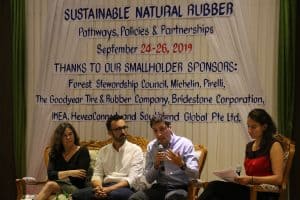
Developing a GPSNR Assurance Model (Members Version)
Assurance is defined as demonstrable evidence that specified requirements relating to a product, process, system, person or body are fulfilled. In other words, thinking about Assurance is to ponder the question: how do we protect the credibility of our claim?
The Executive Committee (EC) has been working on an Assurance model concept since late 2019. Following the request for proposal put up in August 2019, an external consultant was engaged to conduct a review of the options for various Assurance Models that would support the desired outcomes of the Platform. In early 2020, the report from the consultant, which discussed existing approaches to Assurance and included recommendations for GPSNR’s approach to Assurance, was submitted to the EC.
The EC considered the input from the report and expanded upon its findings by conducting a thorough benchmarking of existing Assurance model approaches. Following this exercise, the EC identified and defined several key characteristics that merit inclusion in GPSNR’s Assurance model concept.
In the process of developing these key characteristics, the EC also took into account the purpose, value and benefits of an Assurance model.
A robust Assurance model would provide a credible and effective system to manage risks by supporting the achievement of sustainability impacts, focusing on accurate assessments of compliance, ensuring the effectiveness of its assurance strategies through good information management systems, and finding additional ways to create value for stakeholders.
A webinar will be held on Friday, 26 June 2020 to introduce GPSNR members to a proposed Assurance model concept. To register for the webinar, please click here.
A tabled summary of the process and timelines around the development of the Assurance model concept up until now is included below:
| January 2020 | Consultant report submitted to EC for review |
| January – February 2020 | EC discussions |
| March 2020 | Deep dive into Assurance model benchmark by EC sub-group |
| April 2020 | EC agrees on basic characteristics to build Assurance model from |
| April – June 2020 | Design, discussion and refinement within EC |
Both the report by the external consultant and benchmark exercise completed by the EC are available to members upon request.





